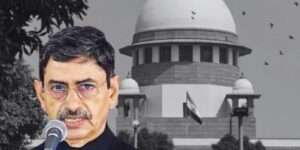UPSC Relevance
- GS-2: Polity & Governance – Governor’s Role, Separation of Powers, Constitutional Interpretation
- GS-2: Federalism – Centre-State Dynamics, Legislative Processes

Key Points: Addressing Constitutional Silence
- The Supreme Court ruled that Governors must decide on Bills within 3 months, ending the practice of indefinite delays.
- This addresses a Constitutional gap in Article 200, which lacks a time limit for Governors’ actions.
Context & Legal Perspective
- Arises from tensions between Governors and elected state governments in states like West Bengal, Tamil Nadu, Punjab, and Kerala.
- Tamil Nadu’s Governor faced accusations of political bias and delays, especially in referring Bills to the President.
Judgment Details (April 8)
- Justices J.B. Pardiwala and R. Mahadevan declared delays beyond 3 months unconstitutional.
- Builds on a 2023 Punjab ruling emphasizing that elected representatives hold real power.
- Warns that Governors’ inaction or delays are subject to judicial review.
Wider Implications
- The Court also suggested setting time limits for Speakers in anti-defection cases (Tenth Schedule), referencing the 2020 Keisham Meghachandra Singh ruling.
- Strengthens institutional checks to prevent misuse of constitutional roles.
Analysis & Path Forward
- The ruling enhances democratic accountability and curbs misuse of Governors’ discretionary powers.
- Recommendations include codifying roles for constitutional authorities and enforcing statutory timelines.




